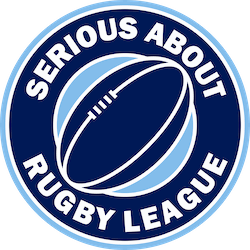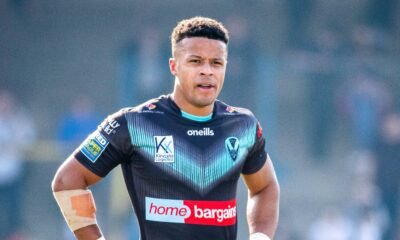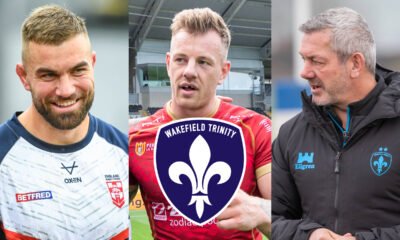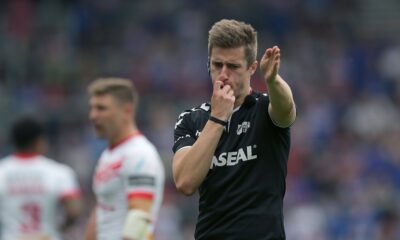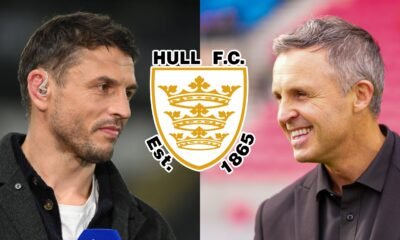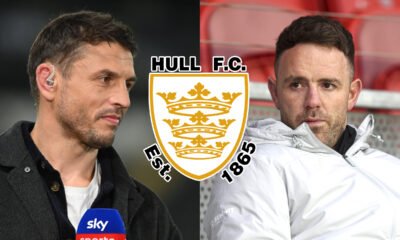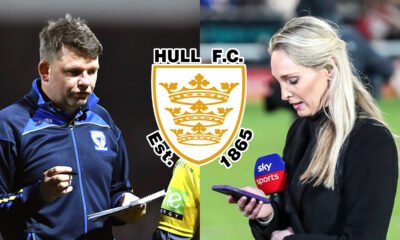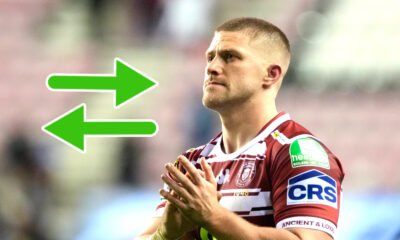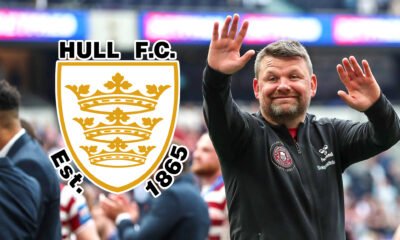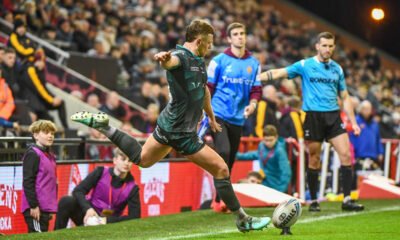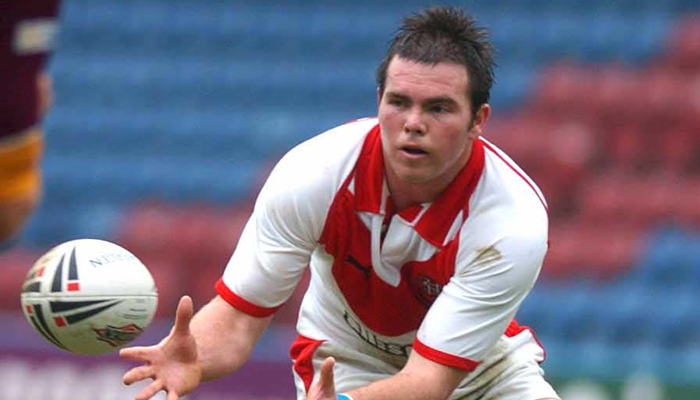
In 2005, St Helens set about rewriting the wrongs of 2003 and 2004. In doing so they brought in the likes of Jamie Lyon which eventually culminated in one of the greatest Super League teams ever and the treble in 2006.
After claiming the Man of Steel and helping Saints to the Super League trophy, Lyon returned to Australia. St Helens needed to bring in a solid replacement if they were to continue their dominance over the league. Their search led them to Matt Gidley.
Older brother to former Warrington star Kurt Gidley, Matt was born and bread in Newcastle and lived and breathed rugby as many do in the area. In 1995 he represented the Australian Schoolboys a year before making the leap to the Newcastle Knights first team.
Despite spending the majority of his youth career in the halves like Lyon, he made the switch to centre for the Knights happy to represent his home town team – the team he’d spend his entire NRL career with.
His growing reputation saw him named in the Australian squad in 1999 and he’d even play in their tri-nation final victory over New Zealand.
The highs kept coming. A year later, he debuted for New South Wales before playing in the 2001 NRL Grand Final. It was the stuff of dreams for Gidley as he led his boyhood club to glory alongside Knights legends Andrew Johns and Danny Buderus.
That triumph brought him up against Super League opposition for the first time in his career in 2002 as Newcastle suffered defeat at the hands of Bradford in the World Club Challenge. That didn’t stop Gidley from continuing to grow his reputation. He was a key fixture in New South Wales’ dominant State of Origin side as well Australia’s all-conquering national team.
He and winger Timana Tahu created one of the all-time great centre-wing partnerships giving birth to Gidley’s famous flick pass which he soon became famous for.
However, his career began to stall a touch as his best form fell behind him. He retired from representative rugby to focus on his club performances and, after making over 200 appearances for his home town team, his pursuit of improved club performances led him to Super League Champions St Helens as Jamie Lyon’s replacement.
This, despite Gidley’s greater NRL legacy at the time, came with huge pressure after Lyon’s superb two-season stint at Knowsley Road. Gidley was expected to continue St Helens’ domination of Super League.
He got off to a good start. He helped St Helens to a world title against Brisbane Broncos before claiming the Challenge Cup in the first final at the new Wembley. Soon after he and the Saints won the League Leaders’ Shield as St Helens came within touching distance of an unprecedented double treble. However, he and his side found themselves unstuck at Old Trafford as Leeds produced arguably the greatest ever Grand Final performance in a 33-6 win.
Unfortunately for Gidley, 2008 was a similar story. The Saints again were one win away from the treble only to be foiled by the Rhinos in the Grand Final. St Helens’ loosened grip on the Super League trophy most likely wasn’t symptomatic of Gidley’s performances in their colours. He produced some of his finest rugby in Lancashire even scoring in the 2008 Grand Final. Nonetheless his performances failed to yield this hemisphere’s biggest honour.
It continued to allude him in 2009 and 2010 two seasons in which Saints made the decider but were no longer front runners in the league table. Leeds again defeated him in 2009 before rivals Wigan took the trophy in his final game in 2010.
It epitomised his time at St Helens as they became the nearly men in Grand Finals through no fault of his own. Gidley made over 120 appearances for the Saints averaging over a try every three games as his right edge dominated. He formed a formidable partnership with Ade Gardner who was Super League’s top scorer in 2008.
A year later he took a different route to the vast majority of players. He returned to his home town team Newcastle Knights as Business Development Manager but quickly moved up the ranks and was appointed CEO of Football Operations in June whilst his younger brother continued to skipper the side.
After six years in the job, he stepped down in 2017. At present he has no known associations in the sport.
